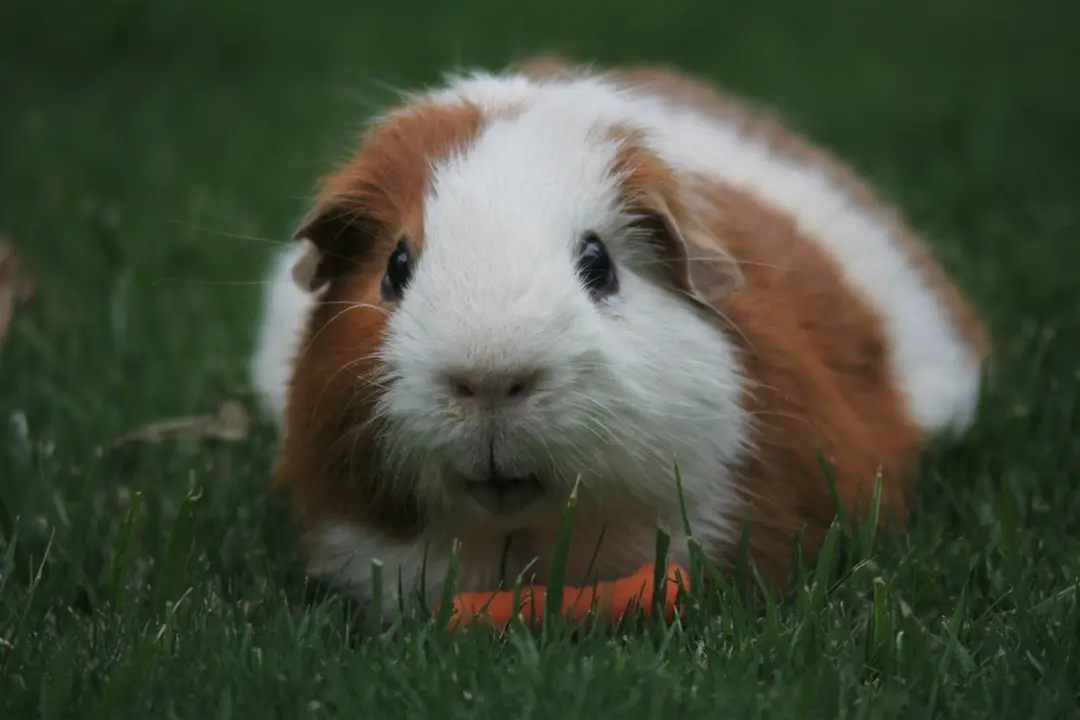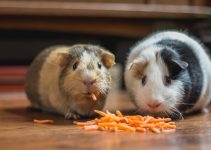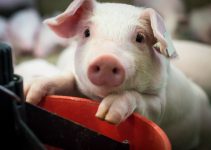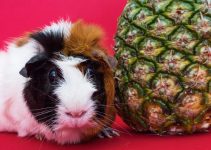Did you know a guinea pig can create as many as 11 different vocal sounds? These amazing creatures are extremely social and need care and attention. But do you know how to check their sex?
Many people believe checking the nipples can help define genders, though this is not the best indicator. Read on as we discuss how many nipples guinea pigs have and how to care for your pet.
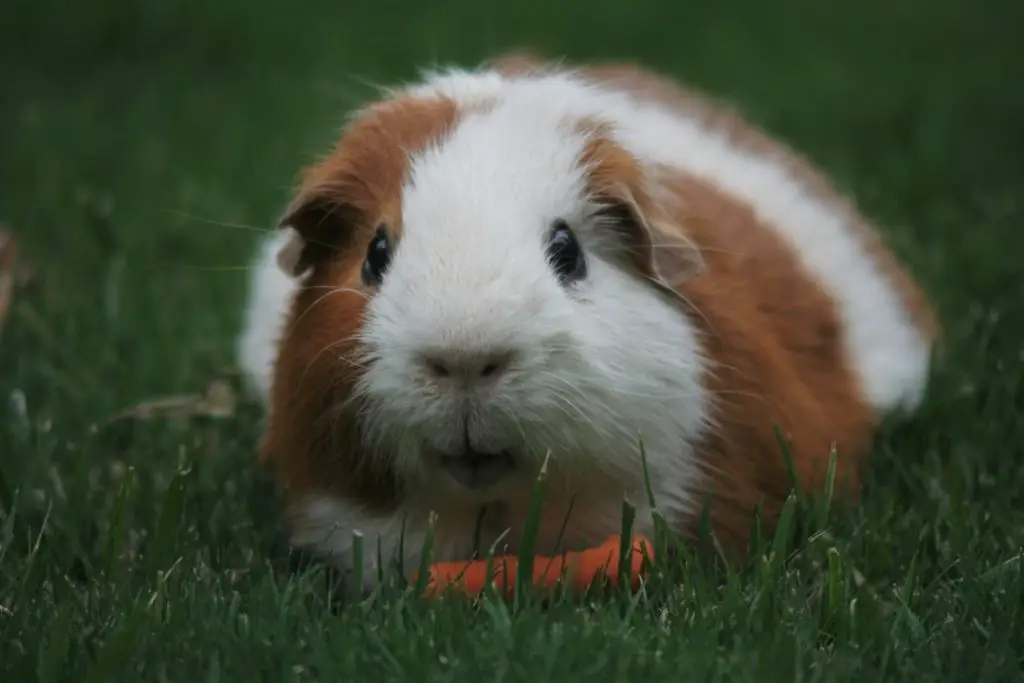
Contents
- 1 How Many Nipples Do Guinea Pigs Have?
- 2 Do Both Genders of Guinea Pig Have Nipples?
- 3 Do Female Guinea Pigs Always Have Nipples?
- 4 How Many Babies Will Guinea Pigs Have?
- 5 Why Do Guinea Pigs Only Have Two Nipples?
- 6 Do Male Guinea Pigs Eat Their Babies?
- 7 Guinea Pig Lifespan
- 8 How To Tell if a Guinea Pig Is Pregnant
- 9 Possible Guinea Pig Nipple Infections
- 10 How Do I Find a Guinea Pig’s Gender?
- 11 Caring for Your Pet
How Many Nipples Do Guinea Pigs Have?
Female guinea pigs only have two nipples. In some cases, a genetic variation may result in three though the third will not function. This is very rare, and two is the normal number.
This means that if your guinea pig has a large litter, it will only be able to feed two at once. In this case, you should try to foster the remaining pups to another female to sow. Discuss this with a veterinarian.
Do Both Genders of Guinea Pig Have Nipples?
Both genders of guinea pigs will have nipples. The females, known as sows, will tend to have larger nipples that they use for feeding. Though present, the male boar’s nipples serve no function.
Do Female Guinea Pigs Always Have Nipples?
Female guinea pigs will always have nipples, though they will look different to the males. It is also not uncommon for nipple size and shape to change, particularly during pregnancy. For more information on the mating habits of guinea pigs, we have a helpful article here.
How Many Babies Will Guinea Pigs Have?
A guinea pig can give birth to as little as two pups and as many as six, though two to four is more common. It is also a regular occurrence to have stillbirths in the litter. Sows that are experiencing a first-time pregnancy will tend to have smaller litters.
Why Do Guinea Pigs Only Have Two Nipples?
It is not known why guinea pigs only have two nipples when litters produce on average two to four pups. This may be because larger litters can expose the mother to more problems, such as toxemia.
Do Male Guinea Pigs Eat Their Babies?
It is very rare that guinea pigs, male or female, will eat their offspring. This is much more likely to happen in other animal species. However, other pets could eat them such as when cats eat guinea pigs.
The male will only eat offspring if they do not belong to them. A mother may eat babies accidentally though only if she is excessively hungry after giving birth. It is normal for her to eat the placenta, and they may confuse it with a baby.
A number of steps can be taken to prevent this from happening. For the mother, provide alfalfa and timothy grass to hydrate them. You should also take other guinea pigs away from the mother and pups, placing them in another cage.
Male guinea pigs should be separated from the mother and pups. This is regardless of if they are the father or not. Female guinea pigs can go back into heat a very short time after giving birth.
Guinea Pig Lifespan
Each guinea pig, regardless of gender, will have a lifespan of four to eight years. Sexual maturity will be reached at around four to six weeks of age in females. Males take a little longer to reach sexual maturity at eight to nine weeks.
How To Tell if a Guinea Pig Is Pregnant
You can actually feel a guinea pig and see if they are pregnant. By about two to three weeks into a pregnancy, gently touch the abdomen of the pig and feel the pups inside. Another clue is that female guinea pigs get very large during pregnancy, often doubling their weight.
Once you know a guinea pig is pregnant, separate it from any other guinea pig. The hormones released can impact her behavior and temperament, so this will keep her safe.
The gestation period runs for an average of 65 days. It can be as low as 60 and as high as 70. Once they have given birth they can go back into heat as quick as 15 hours after birth, so keep her away from males if you don’t want a second litter.
Possible Guinea Pig Nipple Infections
It is quite common for guinea pigs to have enlarged nipples or lumps in the area even when not pregnant. These are usually the result of an injury or an infection. We have collected the most common below, but any swollen, red area that suffers from discharge should be looked at by a trained professional.
Mastitis
This is the most common problem in pregnant guinea pigs and new mothers. It is caused by a bacterial infection in the milk glands, brought on by cuts and scrapes from the pup’s teeth.
Mastitis manifests itself as swollen, red nipples. The skin around the area may be hot, with a bluish coloration. A thick, clotted discharge may also be found.
Treatment comes in the form of an antibiotic. If left untreated, the infection can spread around the body. In extreme cases, this can result in death.
Sebaceous Cysts
These cysts are non-threatening, painless growths that cause lumps under the skin. They’re only a problem if they burst, which leads the guinea pig open to infection. Sebaceous cysts do not need operating on and can be left.
Cancers
Like any animal, guinea pigs can get cancers. Mammary cancers occur in both male and female pigs and are the second most common form of cancer in the species. Animals over four years old are more likely to have them.
How Do I Find a Guinea Pig’s Gender?
As both males and female guinea pigs have nipples, this can not be used to determine gender. However, the female will have much larger nipples than the male.
Another way to tell is with size. Males will be slightly bigger than their female counterparts with longer bodies. A fully grown male can weigh around 700 grams while females are around 450.
Finally, check their genital region. A female will have a very small Y-shaped vagina.
The males should have a visible scrotum. Pressing lightly on the lower belly may also cause the penis to appear.
Caring for Your Pet
Now you know how nipples don’t define male vs. female genders in guinea pigs, use other methods to check. However, you should look at the nipples regularly. There are many health issues that can arise and are a good indicator of how your pet is doing.
If you have any pet-related queries, your first stop should be Animal Fate. We have a whole host of blogs and articles on a range of domestic animals. Click here to read all our articles on cats and other household pets.
